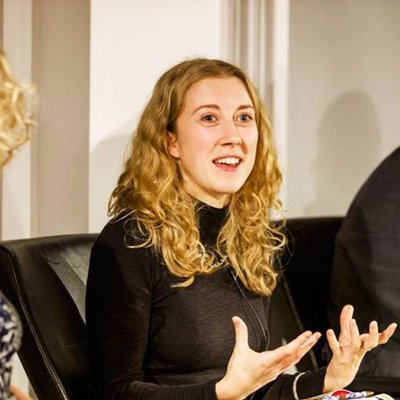
Welcome to our guest blogger, Yarrow Townsend. This is the first in a series of three posts she is writing for the Sally Bibb blog.
In the years before I took my A Levels, my mum switched jobs, from working as a librarian (which she enjoyed) to being a medical receptionist (which she quickly found she hated). She cared deeply about helping people, but in her new role there was very little time for her to support patients and put them at ease. The workplace was understaffed, she was tied to the phone and the computer. She came home stressed and frustrated that she couldn’t use or show her strengths.
More than once, I asked why she didn’t just up and leave. When I was small, she had gone to art school, retaken GCSEs and started training as a reflexologist. Now her job was squashing away all her interests, and it was clearly having an impact on her health. At the time, I thought it was a lack of ambition. Now, I know that she didn’t have the support, or freedom, or self-belief to move into a job that she loved.
I didn’t know how to help her, but I knew I didn’t want to end up in the same position.
I was adamant never to have a job I hated.
And I never have.
Here are three lessons I’ve learned along the way about how to find work you’ll love:
- Learn what you love doing, and do it!
.
At school, I was always doodling during lessons or sneaking a look at a book under the desk.
.
I remember feeling energised when, for my GCSE art, I was allowed to do a painting inspired by Philip Pullman’s His Dark Materials, one of my favourite books. And I felt such excitement when, for media studies, I was given free rein to script and storyboard a short film. This freedom—so different from the usual prescribed activities at school—made me feel alive. I started to read about artists and filmmakers and writers. If they could do it, why shouldn’t I?
.
Luckily, my enthusiasm was never squashed by teachers or family telling me to look for job security, status or income. I am very grateful. Choosing my A-Levels, I was able to follow passion, rather than obligation.
.
Ten years later, I know that the majority of people aren’t in that position when deciding what to do with their A Levels, further study, or even retirement. But, by thinking about what we love to do, and reading the stories of those who have made a career out of similar things, we can always get the inspiration and ‘know how’ to make a shift towards something we’ll enjoy.
. - Take the time to learn more about what you love doing
.
While I still love writing and am studying an MA in Writing for Young People, over the last five years I’ve neglected one of my other passions: working outdoors. I dream of owning land and knowing what to do with it, while I write my stories. Occasionally, I find myself wishing I’d studying agriculture, or woodwork or fine art.
.
I don’t regret any of my past choices, but think it’s very important not to ignore daydreams. So I volunteered on sheep farms and looked after dogs. I walked as much as I could every day. Then, helping out at a local riding stables, I gained a qualification in Stable Management. Now I work as a stable hand one day a week, and it’s amazing the difference it’s made to my wellbeing and my writing.
.
It takes time and trial and error to find the things that we love doing, let alone grow confident enough to pursue them as a career. But it is worth the wait.
. - Don’t hide what you love doing
.
In 2008 I applied to Oxford to study English and French. I didn’t fancy my chances: I was a state school student, who didn’t have the advantage of private tuition or a bilingual upbringing. I’d also heard that interviews interrogated your ability to recall dates and facts about authors (something I’m still terrible at). So I was very surprised to be offered a place.
.
A strength is something that you love doing, that energises you, and that you are good at. Looking back, I realise that during those interviews I was showing three of my main strengths: curiosity for the world around me, a willingness to learn, and a strong desire to connect with people. In every interview, I spoke honestly and my enthusiasm was genuine. Unlike many applicants, I didn’t pretend to be something I’m not. If I had done, I don’t think that the tutors would have wanted to work with me.
.
It’s a lesson that’s stuck. I only ever apply for posts that I’m sure I’ll love. Then I have no trouble summoning enthusiasm, interest and creativity at interview. As a result, every time I’ve been interviewed, I’ve got the job.
.
Talk to people. Be honest about what you love and what you care about. Your enthusiasm will shine through, and you never know what opportunities might arise.
After many years training alongside working and raising children, my mum is now a self-employed reflexologist. She really cares for her clients and now has time to volunteer with Macmillan. Playing to her strengths of compassion and empathy, she is doing a job that she loves.
.
What about you?
Is there something you loved doing as a child, that you now regret not pursuing?
Did teachers or family ever encourage you to follow the path to success, instead of following your heart?
Could you find time to start doing something you love every day?
No one deserves to be stuck in a job that they hate.
As my own mum has shown me, there’s always time to make that change and go for something that will make your heart sing.

This is a guest post for the Sally Bibb blog by Yarrow Townsend, Writer, Artist and Stable Hand. Previously a full time teacher, she loves sharing what she’s learned about the power of strengths, and has always been determined to seek and find work she loves. Connect with her on Twitter at @yarrowtownsend.
If you’d like to discover more about your strengths and how you could apply them to your career or in life, check out The Strengths Book by Sally Bibb.

